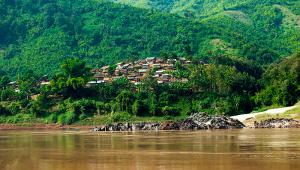Countries such as Mexico, China, Turkey, India, Vietnam, Brazil and South Africa are among the top ranking nations, all of which have robust policies in place to support energy access, renewable energy, and energy efficiency.
Launched last month, RISE – which stands for regulatory indicators for sustainable energy – is the first global policy scorecard of its kind, and grades 111 countries across energy access, energy efficiency and renewable energy.
The aim is to help governments consider how they can improve their policy and regulatory frameworks to drive sustainable development and attract private investment. The scorecard design also helps countries to draw comparisons, and track their progress over time.
Riccardo Puliti, senior director and head of energy and extractives at the World Bank, said “RISE will be an invaluable too for policymakers, helping them to identify and bolster policies and regulations that spur the kind of investments needed to extent access to modern, affordable and reliable energy for all.”
However, while many of the countries ranked in RISE have embraced the drive toward sustainable energy, the report identified policy gaps in all regions. In particular, sub-Saharan Africa, as the world’s least electrified continent, is home to 600 million people who live without electricity.
According the RISE report, 40% of nations in this region have taken almost no progress toward implementing sustainable policies, with Kenya, Tanzania and Uganda being the notable exceptions. This compares unfavourably with the Asian countries covered by the report, of which only 10% are at this early stage of adoption.
The report notes that in order to improve electricity access, there must be a better balance between making power affordable for customers without undermining the financial viability of the utilities they need to invest to expand their services.
However, there may be quick-wins available for countries in terms of improving energy efficiency, an area that is often neglected by governments in favour of boosting renewable energy sources.
RISE highlights the areas for which additional effort is most needed. To this end, the data, which is drawn from 27 indicators, 80 sub indicators, and examines over 3,000 laws, is available on an online platform.













